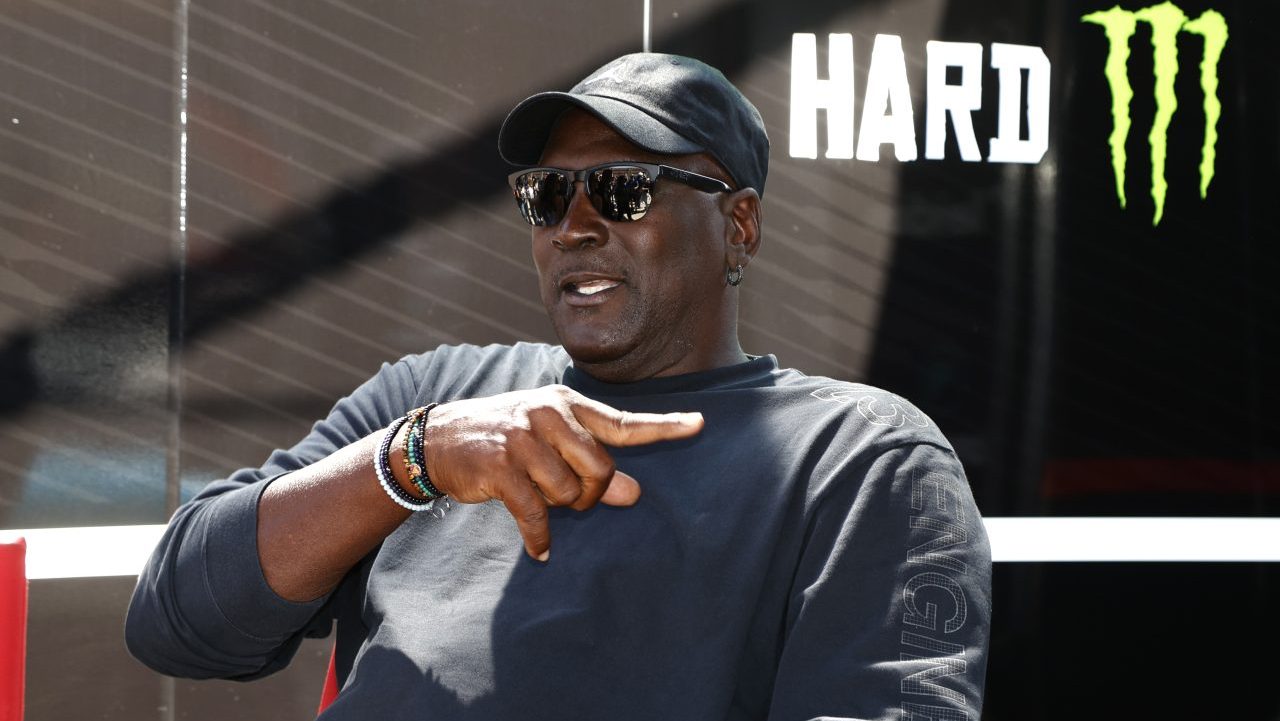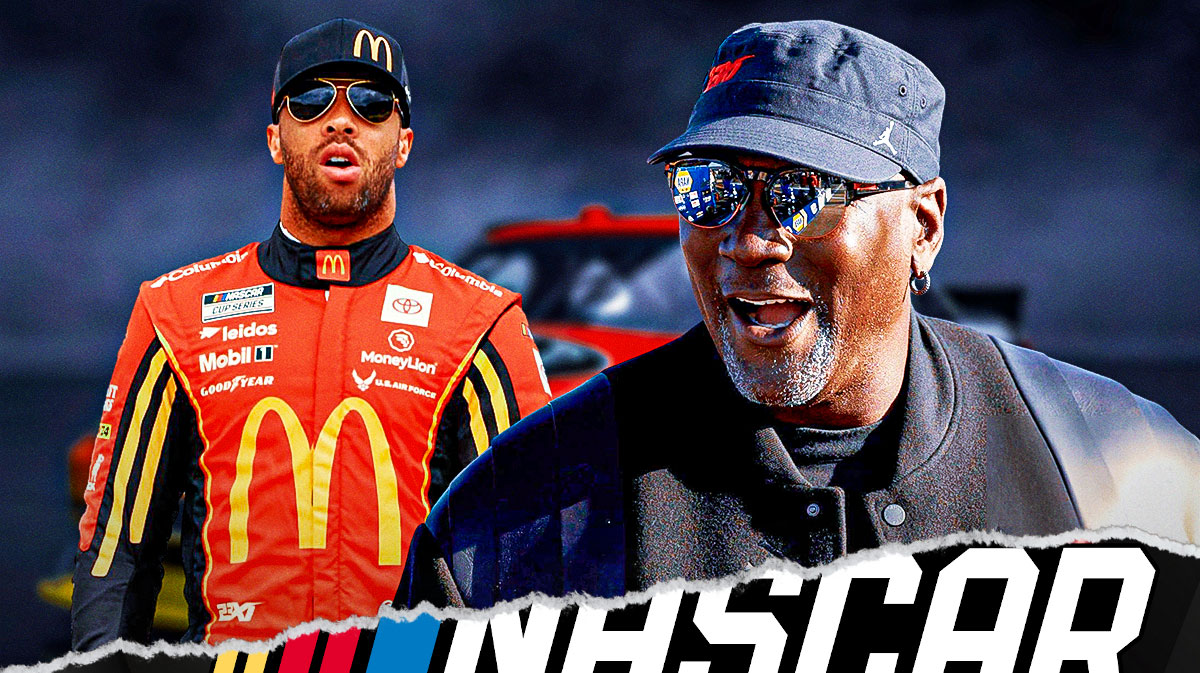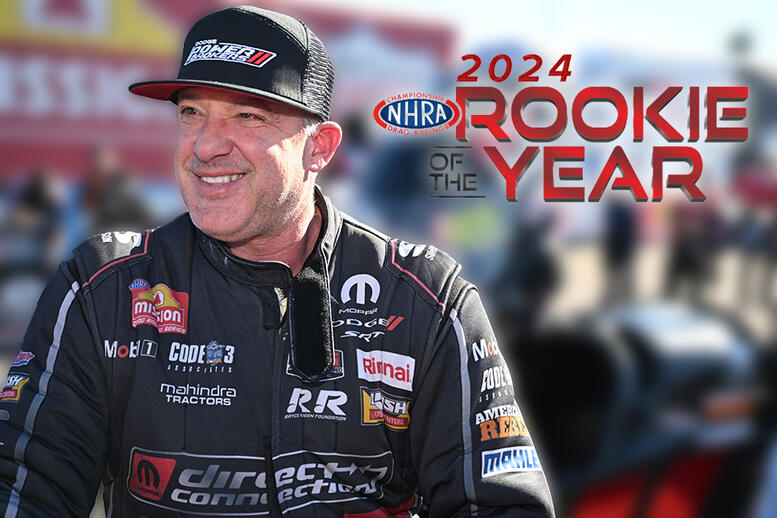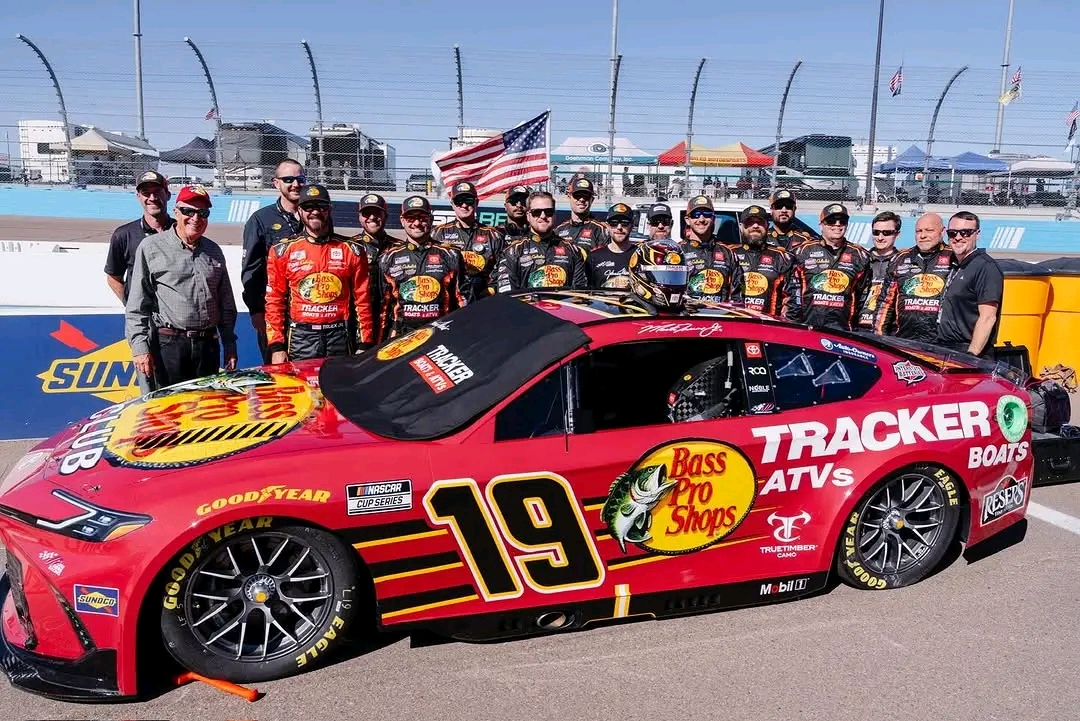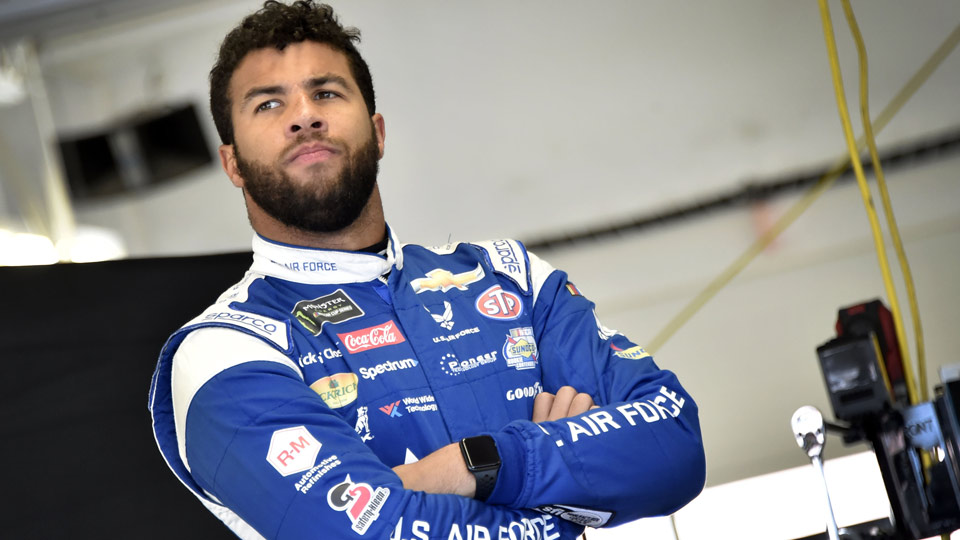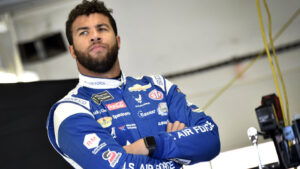**NASCAR Still Holds Hope to Block Michael Jordan and Co.’s $50 Million SHR Acquisitions**
In a surprising twist reminiscent of the high-octane drama on the racetrack, NASCAR finds itself embroiled in a significant challenge regarding the recent acquisitions of Stewart-Haas Racing (SHR) by a consortium that includes basketball legend Michael Jordan. While it initially appeared that 23XI Racing, owned by Jordan and Denny Hamlin, alongside Front Row Motorsports, had gained the upper hand in their pursuit of SHR, NASCAR’s regulatory body is now exploring potential avenues to block the proposed $50 million transfer.
The deal in question has raised eyebrows within the NASCAR community. Speculation suggests that the acquisition involves a vast array of SHR assets, including its technical resources and talented driver lineup. For avid fans and stakeholders, such a union would undoubtedly reshape the competitive landscape of NASCAR, aligning two prominent teams under a management structure that could leverage both resources and expertise.
However, NASCAR’s response has illuminated lingering concerns about the implications of such consolidations in a sport traditionally characterized by its competitive balance. Industry insiders claim that the governing body is particularly worried about the possible monopolization of top-tier teams, which could stifle competition and fan engagement. NASCAR regulations have historically aimed to maintain a level playing field, and some fear this acquisition could skew it significantly.
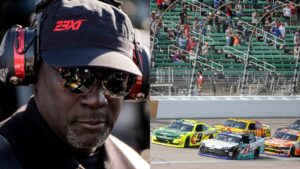
In a statement addressing the matter, NASCAR officials conveyed their commitment to maintaining a competitive environment. “While we recognize and appreciate the growing interest in our sport from high-profile personalities and investments, we must ensure that any major changes adhere to our competitive principles. We are currently assessing the implications of this acquisition and will proceed with careful consideration,” the officials remarked.
Despite the apparent hurdles, both 23XI Racing and Front Row Motorsports expressed optimism. They contend that by joining forces, they can contribute positively to the sport’s future. Denny Hamlin, a co-owner of 23XI Racing, referred to the potential collaboration as a way to enhance innovation and elevate the overall quality of racing in NASCAR. “We’re not just in it for ourselves; we want to push the envelope for the entire sport. This is a chance to elevate what we can offer race fans while maintaining competitive integrity,” he stated in a recent interview.
Jordan’s entry into the NASCAR realm has garnered significant attention, stirring excitement among fans who have long anticipated a blending of sports legends and stock car racing. The crossover appeal and marketing potential are clear, as Jordan’s brand continues to resonate with audiences well beyond the traditional NASCAR demographic. However, as enthusiasm builds, so too does the scrutiny from NASCAR officials focused on preserving the sport’s core values.
NASCAR has stressed the importance of equitable growth within the series. While the sport thrives with new investments, it simultaneously needs to guard against shifts that might create an imbalance. Discussions about potential regulations aimed at keeping acquisitions in check have surfaced, with the goal of ensuring fairness and enhancing competition.
Furthermore, industry stakeholders are closely watching how this situation unfolds. Team owners, sponsors, and broadcast partners all sit in anticipation of the outcome, knowing it could reshape team dynamics and affect overall participation levels from emerging entities. While resistance from NASCAR is expected, sentiments within the community remain divided; many are eager to see innovative collaborations take root, while others express caution regarding the implications of concentrated team ownership.
As NASCAR continues its evaluation of the proposed acquisition, the drama around this potential shift signals a pivotal moment for the sport. Whether NASCAR ultimately conquers this challenge and upholds its competitive integrity remains to be seen. For now, the world of stock car racing holds its breath as the engines of its complex governance rev up for what may well be one of its most critical races yet.





